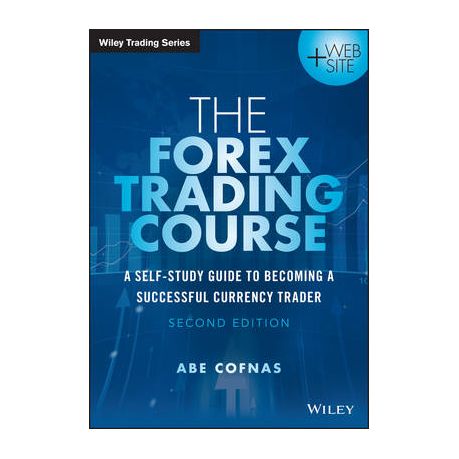A Detailed Forex Trading Course for New Traders and Investors
Wiki Article
Recognizing the Fundamentals of Currency Exchange in Today's Global Market
In a progressively interconnected worldwide economic climate, realizing the fundamentals of money exchange is vital for stakeholders across numerous markets. As main banks apply impact and technical innovations improve currency trading, the implications for global business are far-ranging.The Essentials of Money Exchange
Currency exchange is a fundamental facet of the worldwide economic climate, promoting worldwide trade and financial investment. It includes the conversion of one currency right into an additional and is crucial for services, governments, and people who take part in cross-border purchases. The currency exchange process takes location in the fx market (Forex), which is the biggest and most fluid economic market worldwide, operating 24-hour a day, five days a week.At its core, money exchange is driven by supply and demand characteristics. Money are traded in sets, such as EUR/USD or GBP/JPY, and the currency exchange rate in between them indicates just how much one currency deserves in terms of an additional. This rate fluctuates constantly due to trade circulations, capital activities, and other market tasks.
Participants in the Forex market array from large monetary establishments and international corporations to individual financiers and tourists. Each participant might have various purposes, such as hedging versus currency exchange rate risk, hypothesizing on money activities, or facilitating international purchases. Comprehending the fundamentals of currency exchange is important for making educated decisions in the international market, as currency exchange rate can significantly influence the cost of items and solutions, financial investment returns, and economic stability.
Aspects Influencing Exchange Fees
Exchange prices are formed by a complicated interplay of numerous financial aspects, showing the loved one stamina and security of nationwide economic situations. Trick amongst these aspects is rate of interest differentials. Higher passion prices provide loan providers better returns relative to various other nations, bring in more foreign resources and triggering the currency to appreciate. On the other hand, rising cost of living prices play an important duty; money in countries with reduced inflation rates have a tendency to appreciate as acquiring power boosts relative to higher-inflation economies.
Additionally, profession equilibriums affect money value. A nation with a significant trade surplus commonly sees its currency value due to enhanced foreign need for its items and services, while a trade shortage can compromise the money.
Political stability and economic performance are vital as well; nations perceived as low-risk destinations for investment have a tendency to see their money appreciate. forex trading course. Market speculation can likewise drive currency exchange rate fluctuations, as traders expect future movements based on current economic signs and geopolitical events. These aspects jointly add to the dynamic nature of exchange rates in the worldwide market
The Function of Reserve Bank

Reserve banks likewise participate in fx treatments to fix excessive volatility or imbalances in currency exchange rate. These interventions could include buying or marketing international currencies to maintain a desired exchange price level. In addition, main banks hold significant forex books, which can be released tactically to sustain their money.

Innovation and Currency Trading
While central financial institutions shape the overarching landscape of money exchange, technological innovations have transformed the auto mechanics of money trading itself. The proliferation of electronic systems has actually democratized access this to international exchange markets, making it possible for individual traders to take part along with institutional investors. Online trading platforms, furnished with like this real-time information and logical devices, facilitate informed decision-making and have added to raised market liquidity.Mathematical trading, powered by advanced software application, has revolutionized the speed and performance of money trading. Formulas perform trades based on predefined requirements, reducing human intervention and reducing the time called for to capitalize on market motions.
Cryptocurrencies, underpinned by blockchain, have presented a new measurement to money trading, triggering market individuals to adapt to an evolving economic community. As innovation continues to evolve, its influence on money trading will likely deepen, forming future market characteristics - forex trading course.
Effect On Global Profession
In the interconnected landscape of global trade, currency exchange plays a critical function in forming financial relationships between nations. A solid money can make a country's exports a lot more expensive and much less attractive on the global stage, potentially minimizing market share.Money variations can likewise result in financial uncertainties, complicating lasting preparation for multinational firms. Organizations often hedge versus these dangers with financial tools to stabilize prices and revenues. Exchange rates influence international direct investment (FDI) choices, as financiers seek favorable problems to optimize returns, affecting capital flows across boundaries.
Moreover, federal governments strive to maintain steady currency exchange rate to foster foreseeable trading conditions, sometimes interfering in fx markets to achieve financial goals. Central financial institutions may readjust rate of interest rates or carry out monetary policies to affect currency toughness, thus affecting profession characteristics.
Final Thought
A detailed grip of money exchange basics is necessary for browsing the intricacies of the global market. Exchange rates, shaped by interest rates, inflation, and financial development, are pivotal in identifying money browse this site evaluations.Report this wiki page